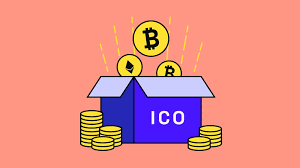Solana sandwich attacks ‘way down’: Anza’s Max Resnick
This is a segment from the Lightspeed newsletter. To read full editions, subscribe.
When Anza’s lead economist Max Resnick came on Lightspeed recently, I asked him a question that frequently gets brought up in conversations about Solana’s economics: What should be done about the sandwich attack problem?
His answer surprised me. “The sandwiching rate [is] way down,” Resnick said.
Solana’s speed makes it an ideal venue for timing games at the expense of unsophisticated users. A sandwich attack happens when a toxic market participant both frontruns and backruns a trade to profit at the expense of the trader.
Sandwiching has historically been a big concern for Solana and its developers. In early 2024, Solana infrastructure shop Jito shut down its mempool over sandwiching concerns. A couple months later, the Solana Foundation cut suspected sandwichers from its stake delegation program. Jito’s DAO also voted to blacklist malicious validators from its stake pool.
None of these fixes turned out to be panaceas, however, and the sandwich attacks continued.
But the story Resnick tells is that sandwich attacking was blunted not by blacklisting bad actors — who may be able to re-emerge with a different online identity — but by improving Solana’s code.
Basically, sandwich attacks are numbers games for the attackers.
In 2024, when landing transactions on Solana was much more difficult, transactions were sprayed widely to validators in hopes of getting user transactions to the blockchain. This meant toxic validators saw a lot of transactions and had more chances to frontrun them. As Solana’s transaction “targeting” has improved, fewer validators see each transaction on average, so sandwichers have fewer opportunities to mess with transactions, Resnick said.
Disclaimer: The content of this article solely reflects the author's opinion and does not represent the platform in any capacity. This article is not intended to serve as a reference for making investment decisions.
You may also like
From "whoever pays gets it" to "only the right people get it": The next generation of Launchpads needs a reshuffle
The next-generation Launchpad may help address the issue of community activation in the cryptocurrency sector, a problem that airdrops have consistently failed to solve.

After bitcoin returns to $90,000, is Christmas or a Christmas crash coming next?
This Thanksgiving, we are grateful for bitcoin returning to $90,000.

Bitcoin security reaches a historic high, but miner revenue drops to a historic low. Where will mining companies find new sources of income?
The current paradox of the Bitcoin network is particularly striking: while the protocol layer has never been more secure due to high hash power, the underlying mining industry is facing pressure from capital liquidation and consolidation.

What are the privacy messaging apps Session and SimpleX donated by Vitalik?
Why did Vitalik take action? From content encryption to metadata privacy.

